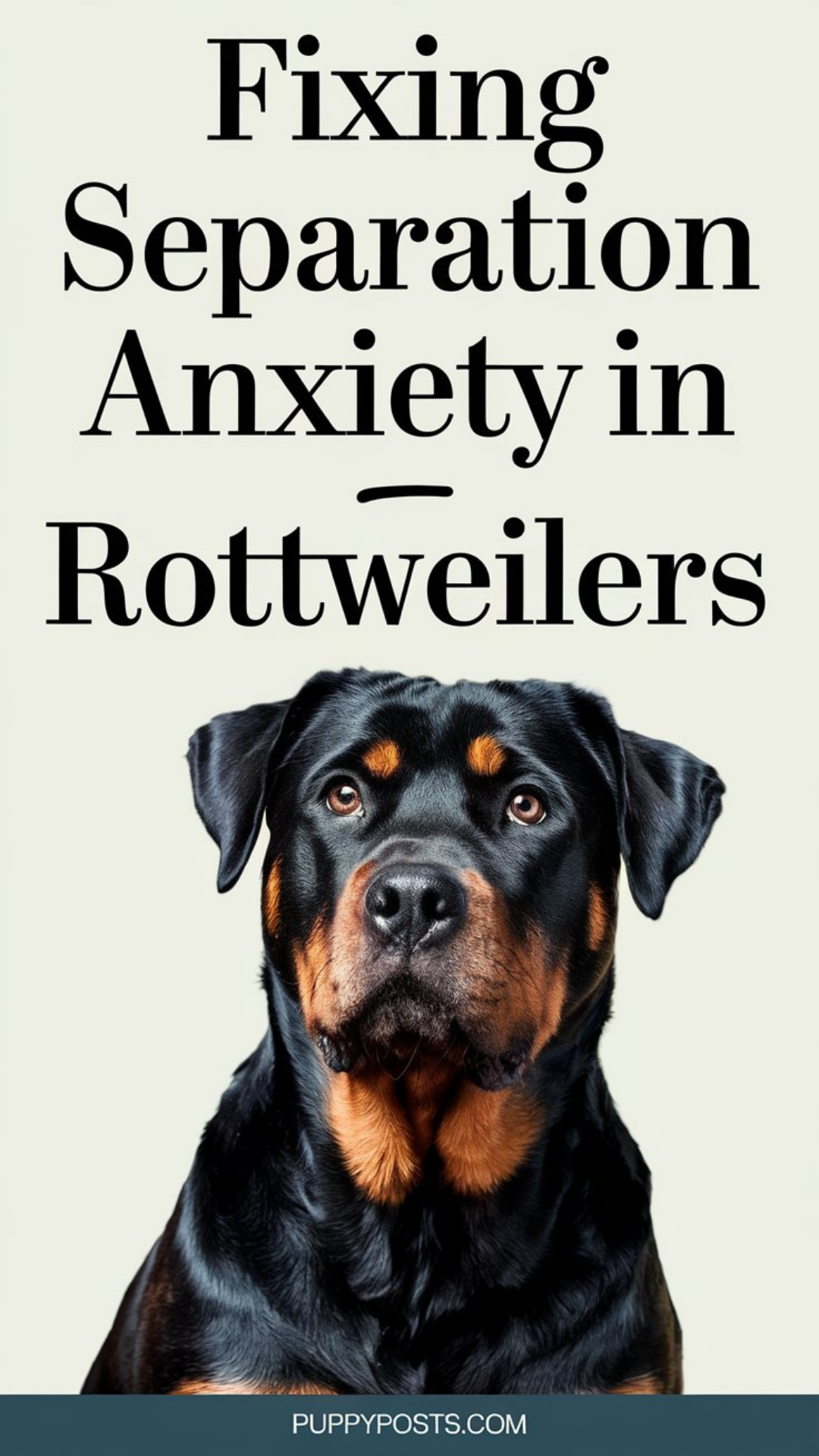Fixing separation anxiety in Rottweilers
Let’s get real: Rottweilers are strong, confident dogs—but when separation anxiety hits, even the toughest dogs can struggle. If your Rottie flips out when you leave the house, it’s time to step up and handle the problem head-on. I’ve been a veterinarian for over a decade and run a sanctuary for stray dogs and cats, and I’ve seen separation anxiety wreck dogs and families alike. But here’s the truth—you don’t have to live with it. You fix it, and you fix it right.

What Drives Separation Anxiety in Rottweilers?
Rottweilers bond hard and fast with their families. When you step out the door, your dog’s brain goes into panic mode, feeling abandoned and unsafe. This fear can cause destructive behavior, constant barking, pacing, or accidents in the house. Your job is to teach your Rottie that alone time is safe and nothing to freak out about.
Step 1: Create a Safe, Calm Zone
Set up a secure space your Rottie can relax in while you’re gone. A crate or gated area with comfy bedding and a few favorite toys works best. This space becomes their den, a place where they can chill and feel protected.
Step 2: Build Alone Time Slowly
Don’t drop your dog alone for hours on day one. Start with minutes. Step out for a short break, then come back. Keep departures and arrivals low-key—no fuss, no drama. Gradually increase the alone time, letting your Rottweiler adjust at their own pace.
Step 3: Burn Off That Energy
Rottweilers need mental and physical workouts daily. Before you leave, give your dog a solid walk or play session. A tired dog handles alone time with less anxiety. Mix in training or puzzle toys to tire their brain, too.
Step 4: Reward Calm Behavior
When you return and your Rottie is calm, reward that behavior. Give treats, affection, or praise. Positive reinforcement is the way to teach your dog that staying relaxed pays off.
Step 5: Don’t Punish Anxiety
If your dog barks, chews, or acts out because they’re scared, don’t yell or punish. That only makes the problem worse. Stay calm and patient. Your dog needs support, not scolding.
Step 6: Ask for Professional Help When Needed
If you’ve tried and your Rottie’s anxiety persists or worsens, don’t hesitate to reach out to a professional trainer or veterinary behaviorist. Early help prevents a small problem from becoming a big one.
The Bottom Line
Fixing separation anxiety in Rottweilers takes steady, calm leadership and a clear plan. Build a safe space, introduce alone time gradually, exercise your dog’s body and brain, and reward calmness. Stick with it, and your Rottie will learn to be confident and relaxed—even when you’re not around.







